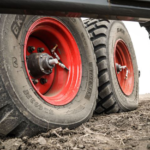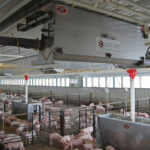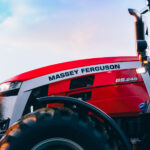Get to Grips with Soil Compaction
How do you protect your soils from yield-sapping hardpan? “Soil compaction is one of the most common problems farmers face today – it severely limits yields and impacts margins,” says Cameron McKenzie, Seeding & Tillage Product Marketing Manager for the...
Get to Grips with Soil Compaction
How do you protect your soils from yield-sapping hardpan? “Soil compaction is one of the most common problems farmers face today – it severely limits yields and impacts margins,” says Cameron McKenzie, Seeding & Tillage Product Marketing Manager for the...How do you protect your soils from yield-sapping hardpan?
“Soil compaction is one of the most common problems farmers face today – it severely limits yields and impacts margins,” says Cameron McKenzie, Seeding & Tillage Product Marketing Manager for the farm equipment brand, Challenger. “However, key steps can be taken to deal with it through the use of proper soil management.”
“As the name implies, compaction occurs when soil particles are compacted together, restricting the amount of space for the air and water needed for optimum plant growth. Compaction can occur naturally or be caused by farming practices. Most often, compaction is created by today’s modern heavy equipment traffic. The key to controlling it is to understand your farm’s soils, ascertain the root cause of compaction and learn how to reduce its costly effects.”
“Compaction tends to build up over time and gets worse every time you work your fields – most particularly in wet conditions,” he says. “If you haven’t deep-ripped your fields for example, compaction from a wet spring three years ago can dramatically lower yields further down the line.”
Certain soils compact more easily than others. Soils made up of particles of about the same size compact less than soils with particles of varied sizes. Wet soils compact more easily than dry, while soils high in organic matter have a better structure and are more likely to resist compaction.
Some important things to remember:
- Most compaction is caused by equipment traffic
- Up to 80% of compaction in the field occurs on the first pass of the season
- Surface compaction is caused by high ground pressure created by reduced contact area
- Deep compaction is caused by high axle loads
- Slip compaction is caused by low surface contact areas and smearing of the topsoil
- Pinch-row compaction is caused by dual or triple wheels as ground pressure from the tyres shifts from the centre of the tyre to the outside
To read the full article, please click here

![CompactionIMG_0383[1]](http://stageblog.agcocorp.com/wp-content/plugins/php-image-cache/image.php?path=/wp-content/uploads/2014/09/CompactionIMG_03831-300x199.jpg)


